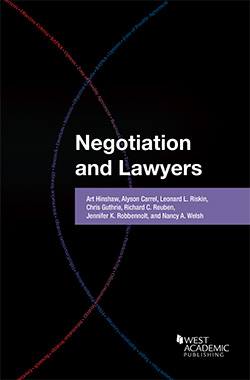This article is part of a series of perspectives on eviction mediation program development that is being supported by the American Arbitration Association-International Centre for Dispute Resolution Foundation. The AAA-ICDR’s grant is enabling RSI to expand our outreach to court ADR colleagues working in the fast-evolving eviction field, and we are tremendously grateful to the Foundation for their support.
RSI conducts three virtual mediation programs in northern Illinois. The programs are supervised by Eviction Mediation Programs Manager Chris Riehlmann. In this role, Chris oversees the administration, data collection and reporting, and ongoing development of the programs. He recently took some time to answer some of Court ADR Connection’s questions about the programs and his experience.
Chris, can you start by sharing a little about your background prior to joining RSI?

Education-wise, I received my B.A. and J.D. from Loyola University Chicago. During law school, I focused mainly on learning all aspects of litigation and criminal law. Following law school, I pursued my interest in civil rights by working with the Greater New Orleans Fair Housing Action Center, the Orleans Parish Public Defenders Office, and private civil rights attorneys in the Chicago area. My first real attorney job was for a high-volume personal injury law firm representing plaintiffs injured by car accidents, medical malpractice, slip and falls, defective products and more. This position gave me real experience handling cases from beginning to end while interacting with judges, opposing counsel and clients.
My most meaningful foray into the housing legal realm was working for Open Communities, a fair housing non-profit in Evanston, IL. While at O.C., I led a team that investigated allegations of housing discrimination, took legal action against bad actors and educated the public on their housing rights. I also learned how eviction litigation worked and defended individuals who couldn’t afford an attorney. It was eye opening how quick evictions worked, with tenants showing up in court for their first appearance and leaving with an eviction order that same day. There was no chance for tenants to meaningfully participate in the process that was removing them from their homes.
After fighting for housing justice in the northern suburbs of Chicago with Open Communities for four years, I decided to expand my understanding of dispute resolution methods and joined RSI’s eviction mediation team.
In general, what do you see as the benefits of mediating eviction cases?
There are plenty of benefits for everyone involved with the program, such as improving access to justice, legal cost reduction, promotion of judicial efficiency and more. However, the greatest benefit for mediating evictions is that the parties get a chance to breathe and discuss the issues that brought them to the point of legal action on a level field.
In my experience with eviction litigation pre-COVID, cases were decided incredibly quickly, with tenants either being evicted on their first appearance or agreeing to settlements under duress with no clue of the ramifications of their actions. On the other hand, if a tenant knew how the process worked, and had an attorney or faced a landlord who was unrepresented, evictions could potentially take months! Landlords could wait forever and a day for a judgment only to wait even longer for an overbooked sheriff to effectuate the order of possession.
Overall, mediation positively affects the timeline of an eviction by giving both parties an opportunity to efficiently have their needs met. Tenants can slow the warp speed nature of some cases so they can have a voice in the process and potentially avoid the most traumatic aspects of eviction. Landlords can speed up some cases to get a resolution in a few weeks instead of a few months.
Can you give us a broad overview of how the programs operate?
RSI has an eviction mediation program in three counties in northern Illinois: Kane, Winnebago and Kankakee. Each county works in its own nuanced way, but each program starts when the judge presiding over evictions refers a case into the program.
Once the program coordinator is assigned a case, they make contact with both parties to schedule a mediation. Before the mediation occurs, the tenant is connected to resources to help them in the eviction, including rental assistance, housing counseling and legal representation. The idea is to set the tenants up in the best position possible going into the mediation.
On mediation day, the tenant, the landlord and any attorneys sit down with a trained third-party mediator via Zoom to present their case. The mediator gives both parties an opportunity to voice their needs, to discuss what brought them to this point and to discover avenues of resolution. Any agreements reached are memorialized in the appropriate court order form and submitted to the judge for approval. Depending on the terms of the agreement, the case is dismissed or a compliance date is set in the future.
Can you tell us how the programs operate in a hybrid space? Which aspects still occur in the courthouse, and which are conducted online? Has any of that evolved in the nine months you’ve been with RSI?
The majority of all program activities take place virtually. The program coordinators in all three counties attend the court calls remotely, and the vast majority of cases are mediated remotely. The only physical presence we have is in the Kane County courthouse so we can interact with those parties face-to-face if necessary. In Kankakee and Winnebago counties, we are entirely remote, handling referrals and conducting mediations over Zoom. These programs were developed with this level of remote participation in mind, but we still have backup methods to interact with people who need more support.
What challenges do you see when it comes to participating virtually? What benefits?
At the risk of sounding incredibly contradictory, virtual participation both increases and decreases party participation. Holding mediations over Zoom offers flexibility for the majority of parties. People can hop on to a Zoom call while on break at work or any time that is convenient. In a situation where making money to pay off a debt is vital, this flexibility helps keep people on track with payment plans.
On the other hand, some individuals are not very tech savvy and have trouble accessing Zoom through their phone. These are often some of the most vulnerable populations. To address this, we try to have a physical attendance option available. When we don’t have a physical presence at the courthouse, we rely on our social service partners to help people in person access the mediation either over the phone or Zoom.
What have been some of the biggest successes you and your team have had operating these programs? Conversely, what sorts of challenges have you faced, and what have you learned from them?
The programs have had an impressively high agreement rate. Through all three programs, we are reliably assisting around 65% of cases come to a resolution. When the stakes are as high as losing your home or not getting months of rent, consistently setting parties on the path toward mutual success makes us proud.
It seems like contradiction is becoming a theme here, but challenge-wise we’ve seen both the high and low ends of caseloads depending on the county served. In Kane County, we have impressive judicial buy-in and nearly every eviction case is referred into the program. While we are happy about the enthusiasm and know we are helping many residents of Kane County, the constant high volume can be challenging for staff. Once you complete one demanding week of mediations, there is little rest as the next week’s cases are ready to be handled. To address this high volume, we have supplemented staffing to support this program and are exploring adding further personnel.
Conversely, the two other programs are less active and receive fewer referrals. This is due to a variety of issues including getting new judges up to speed, local rental assistance programs being highly effective (thus obviating some of the need for mediation), and different philosophies regarding when mediation is appropriate. We have learned that maintaining good communication with the presiding judge and court administrative staff is integral to promoting program buy-in.
As these programs have now been established for about a year, and the broader eviction landscape continues to evolve, are you anticipating any changes to the programs?
The approaching unknown in the eviction field is the end of rental assistance programs. Since the mediation programs’ inceptions, there have been federal, state and local programs that provide financial support to tenants who are behind on rent. Some of these smaller programs are wrapping up, and the large state program will end in July 2023. Once these resources are no longer available to tenants, the terms of agreements will likely change. We will most likely see less “pay and stay” agreements and more “graceful exits” with an agreed move-out date. I also anticipate providing training to our mediators on how to handle that new state of affairs.



